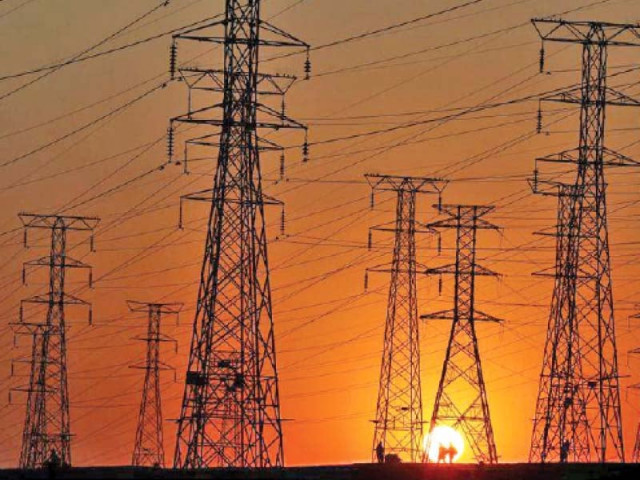K-Electric seeks level playing field
Demand comes as regulator moves to decide fate of company as sole power provider

K-Electric, while expressing reservations about the possible end to its exclusive services, has posed several questions and wants the government to draw up a comprehensive policy for providing a level playing field for all players, protecting the right to electricity for all customers and ensuring continued investment in the power value chain.
These proposals come in the wake of power sector regulator’s move that is going to decide the fate of K-Electric as the sole electricity provider in Karachi.
The National Electric Power Regulatory Authority (Nepra) has announced a public hearing on the matter on September 21. The regulator has asked the general public and other stakeholders to come up with recommendations and reservations about the end to K-Electric’s right to exclusive services, which is expiring in 2023.
Despite general support for the move, there are some dissenting voices as well, which say that Nepra’s move is void of any substantial details and is against public interest.
They warn if the decision is taken in a hurry without adequate safeguards in place and permitting a smooth transition period, it will be a disservice to the general public as opening of a market abruptly can lead to deterioration in the city’s power supply situation.
Talking to The Express Tribune, K-Electric Chief Executive Officer Moonis Abdullah Alvi said the company was not against competition as long as it provided a level playing field for all players, protected rights of all consumers in terms of access to electricity and guaranteed continued investment in the power value chain.
“As a regulated entity, K-Electric is bound to serve all customers, from blue-chip industries and upscale neighbourhoods where power theft and delinquency is almost non-existent right down to extremely underprivileged areas where low per capita income and limited payment propensity results in 60% power theft and recovery losses,” he said.
The existing model operates on cross-subsidy to ensure investments and upgrades are made uniformly across Karachi rather than being concentrated in low-loss areas only.
“If competition leads to real improvement in service delivery, we will not be the ones to obstruct or oppose that process, but we do have real concerns about the existing modification methodology and implications, which may not be in the best interest of people in terms of price reduction, quality of service and further investment in infrastructure,” he said.
Alvi emphasised that K-Electric’s current regulated model gave priority to broad-based social equality by ensuring that even marginalised areas were served and invested in.
Under the new model, unregulated entrants could cherry-pick low-loss customers and industries, and serve them at a lower cost while ignoring the rest of the city, he argued.
Furthermore, he posed a question, who would cater to public sector customers such as the City District Government Karachi (CDGK), Karachi Metropolitan Corporation (KMC), Karachi Development Authority (KDA) and Karachi Water and Sewerage Board (KWSB), all of which were essential to the city, but were not the best when it came to paying bills?
The CEO voiced concern, saying new entrants were being incentivised to invest in electricity generation while K-Electric’s existing transmission and distribution (T&D) network would continue to be used under a rental arrangement.
While K-Electric was expected to maintain and upgrade the T&D system, the potential loss of its customers would severely dent the company’s financial sustainability, rendering it incapable of investing in Karachi’s power needs, he said.
“Lastly, changing K-Electric’s distribution licence ahead of the end of contractual period affects the viability of our investment plans and sets a negative precedence for any future privatisation,” he remarked.
Responding to a question, the K-Electric CEO pointed out that global deregulation roadmaps included consultative sessions with all stakeholders in order to identify risks and ensure that the best interest of all parties was considered.
For the benefit of general public, he said, focus must be on the T&D sector. At present, a lack of policy incentives to attract private sector investment, regulatory uncertainty and inconsistency have marred T&D business.
These have caused network constraints, high aggregate technical and commercial losses, unreliable power supply to consumers and regular upward tariff revision.
“Despite significant capacity additions, around one-fourth of the country’s population lacks access to grid electricity due to bottlenecks in the T&D sector,” he said.
With the pressing challenges faced by the T&D segment, he said, it was worrying how proposed reforms would impact the already fragile power sector in Pakistan.
“Hence, it is imperative that a sustainable and consistent regulatory framework is provided to the distribution companies to allow them to operate and prepare a workable transition plan to move towards competitive markets with adequate safeguards with due consultation.”
About K-Electric’s investment in 15 years since privatisation, he said over Rs335 billion had been invested in power generation, transmission and distribution businesses.
“This has resulted in addition of 1,057 megawatts to the generation capacity, nearly double the T&D capacity, exemption from load-shedding for more than 75% of Karachi and reduction in T&D losses from 35.9% in 2009 to 19.7%,” he said.
“We are confident that our planned Rs250 billion investment over the next three years will ensure elimination of supply deficit and consumers will see benefits starting next summer,” he added.
Published in The Express Tribune, September 19th, 2020.
Like Business on Facebook, follow @TribuneBiz on Twitter to stay informed and join in the conversation.


















COMMENTS
Comments are moderated and generally will be posted if they are on-topic and not abusive.
For more information, please see our Comments FAQ